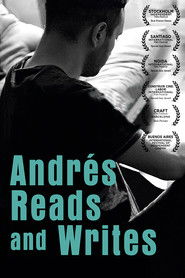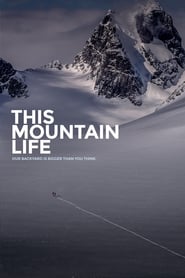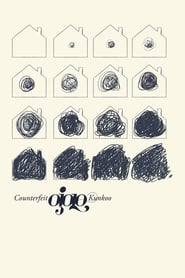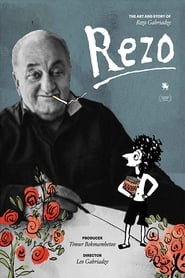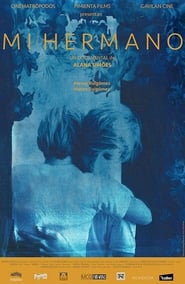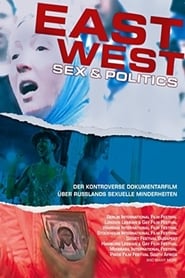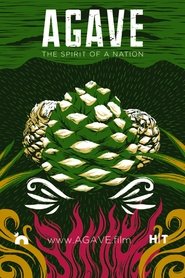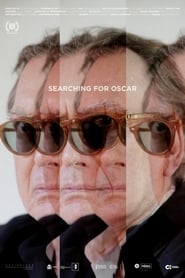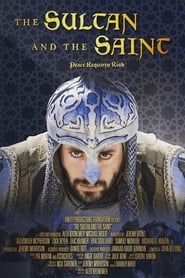Top Rated Movies on Kanopy - Page 480
-
The Doughnuts
1963
The Doughnuts
1963
star 7A dramatized episode from Robert McCloskey's book "Homer Price." Shows Homer's resourcefulness in managing the dilemma created by a doughnut machine with a mind of its own. -
America's Musical Journey
2018
star 5.6"AMERICA'S MUSICAL JOURNEY" celebrates the unique diversity of cultures and creative risk-taking that characterize America, as told through the story of its music. -
Eastern Memories
2018
Eastern Memories
2018
star 7.5At the turn of the 19th and 20th century Finnish philologist G. J. Ramstedt travelled around Mongolia and Central-Asia. In this documentary Ramstedt’s memoirs are heard in the modern day setting, where tradition is replaced with hunger for money, and deserts give way to cities. -
Andrés Reads and Writes
2016
star 4.6A young factory worker who has lost his way and forgotten his teenage dreams, will soon realize that although he hasn’t made the right choices, it’s still not to late to make amends; accompanied by a new friendship that will encourage him to move forward. -
The Most Dangerous Year
2018
star 4.2Washington state lawmakers, activists and parents embark on a crusade to protect the civil rights of transgender children. -
This Mountain Life
2018
This Mountain Life
2018
star 6.2A daughter and her 60-year-old mother embark on a 6 month, 2,300-kilometre ski trek through British Columbia’s rugged terrain. -
Counterfeit Kunkoo
2018
Counterfeit Kunkoo
2018
star 7.2In a city overflowing with buildings and slums, Smita must find herself a house to rent. She is hard-working, honest and respectful - the ideal tenant - except for one glaring flaw. She is a middle-class Indian woman without a husband. An intimate perspective on the identity of the 'Ideal Indian Female' in urban India of today. -
Father's Kingdom
2017
Father's Kingdom
2017
star 6.6This is the untold story of a remarkable American civil rights pioneer, Father Divine, who at one time had over a million followers worldwide in his Peace Mission Movement. However, things became complicated when he claimed that he was God incarnate. -
Letter from Masanjia
2019
Letter from Masanjia
2019
star 8.2Damascus, Oregon, United States. Julie Keith finds a baffling message hidden in a pack of decorative items, a desperate plea for help, written by someone imprisoned in a Chinese labor camp called Masanjia… -
Salam
2018
Salam
2018
star 6.1A female Lyft driver navigates the night shift in New York City while waiting to hear life-or-death news from her family in Syria. -
Rezo
2018
Rezo
2018
star 7.3The rich inner world of famous Georgian theater and film director, artist and puppeteer Rezo Gabriadze is as fantastic as the animation into which he has poured this story of his life. Rezo’s director son Levan "Leo" Gabriadze, who previously made the horror film Unfriended (2014), leaves it to his father to talk about a life suffused with magical thinking. -
My Brother
2018
My Brother
2018
star 7.2Alexey was born in Russia and adopted by Gabriela, an unmarried woman. Later, Gabriela and Alexey adopted Mateo, another child from Siberia. Over the course of nine years, Alexey and Mateo demonstrate what it means to build bonds of reciprocal trust despite the internal conflicts they face. -
East/West: Sex & Politics
2008
star 3.8Both in 2006 and 2007, the Gay Pride Parade attempts in Moscow are violently beaten down. For many observers, the attitude towards the sexual minorities seems to be the litmus test of the state of democracy in Russia. In January 2007, for the first time in Russian history, a Russian leader, president Vladimir Putin mentions the situation of the LGBT community: He won't criticize the politics of Moscow mayor Yuri Lushkov, who forbid the event, but he is concerned about the demographic future of the country. And Putins opinion seems to be repeated by the right wing contra demonstrators on the streets. The film shows both the organizers of the Pride events and also the survival strategies of the majority Russian lesbians and gays, to whom the fight for democracy on the streets doesn't seem to be an attractive alternative. -
Agave: The Spirit of a Nation
2018
star 6.6In Mexico, families have passed down the tradition of distilling agave for generations and now, this once obscure Mexican drink is everywhere. Discover, how one delicate plant has carried the weight of a nation and the people trying to protect it. -
Searching for Oscar
2019
Searching for Oscar
2019
star 4.8Óscar Peyrou is a veteran Spanish film critic who writes his reviews according to a very peculiar method: in his opinion, it is not really necessary to watch the films since it is possible to judge them simply by looking at their promotional poster. -
Yours in Sisterhood
2018
Yours in Sisterhood
2018
star 4.2What might be revealed in the process of inviting strangers to act out and respond to 1970s feminism forty years later? Between 2015 and 2017, hundreds of strangers in communities all over the US were invited to read aloud and respond to letters from the 70s sent to the editor of Ms. Magazine–the first mainstream feminist magazine in the US. The intimate, provocative, and sometimes heartbreaking conversations that emerge from these spontaneous performances make us think critically about the past, present, and future of feminism. -
One or Two Questions
2018
One or Two Questions
2018
star 6.4In 1986, the Uruguayan Parliament passed a law granting amnesty for all crimes and human rights violations committed by the military and police during the dictatorship (1973-85). This law of impunity prevented the clarification demanded by the relatives of those who had disappeared and been murdered by the former regime. A public initiative arose calling for a referendum in which the law be subject to the vote of the people. Unas preguntas uses U-matic footage, mostly of interviews recorded on the streets of Uruguay between 1987 and 1989, to present a time capsule of the period. -
August at Akiko's
2018
August at Akiko's
2018
star 5.5Musician Alex sets off to an island to find his ancestral home with only childhood memories as his navigational system. As he fails to find his home, he reaches a retreat run by a Buddhist woman, Akiko, where he decides to stay for a while. Over a course of few weeks, they share a special spiritual bond out of music and therapeutic techniques. -
Jill Bilcock: Dancing the Invisible
2018
star 7.4With credits including Strictly Ballroom, Muriel’s Wedding, The Dish, Moulin Rouge!, Romeo + Juliet and Road to Perdition Jill Bilcock is regarded as one the world’s great film editors. Axel Grigor’s hugely entertaining documentary traces Bilcock’s journey from Melbourne film student in the 1960s to working as an extra in Bollywood movies and learning her craft when Australia had virtually no feature film industry. Bilcock’s cheeky charm and illuminating appearances by key collaborators make this a must-see for film lovers. -
The Sultan and the Saint
2016
star 6.8Two men of faith, one a traveling Christian preacher, the other the ruler of a Muslim Empire, bucked a century of war, distrust, and insidious propaganda in a search for mutual respect and common ground. It is the story of Francis of Assisi and the Sultan of Egypt, and their meeting on a bloody battlefield during the period of Christian- Muslim conflict known as the Crusades.
 Netflix
Netflix
 Amazon Prime Video
Amazon Prime Video
 Apple iTunes
Apple iTunes
 Apple TV Plus
Apple TV Plus
 Disney Plus
Disney Plus
 Google Play Movies
Google Play Movies
 Paramount Plus
Paramount Plus
 Hulu
Hulu
 HBO Max
HBO Max
 YouTube
YouTube
 fuboTV
fuboTV
 Peacock
Peacock
 Peacock Premium
Peacock Premium
 Amazon Video
Amazon Video
 The Roku Channel
The Roku Channel
 AMC+
AMC+
 Kocowa
Kocowa
 Hoopla
Hoopla
 The CW
The CW
 Vudu
Vudu
 Starz
Starz
 Showtime
Showtime
 PBS
PBS
 Pantaflix
Pantaflix
 FXNow
FXNow
 Tubi TV
Tubi TV
 Kanopy
Kanopy
 Comedy Central
Comedy Central
 Crunchyroll
Crunchyroll
 Microsoft Store
Microsoft Store
 Redbox
Redbox
 Sun Nxt
Sun Nxt
 ABC
ABC
 DIRECTV
DIRECTV
 Crackle
Crackle
 Fandor
Fandor
 Plex
Plex



